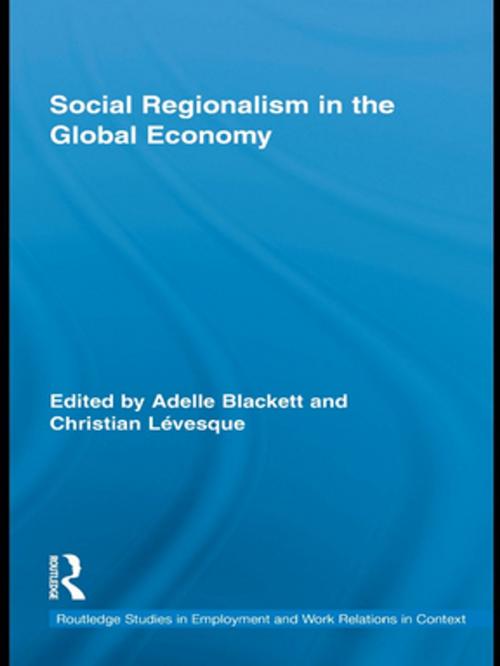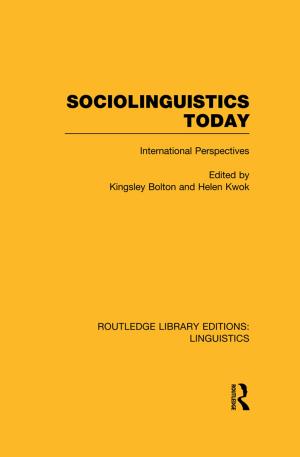Social Regionalism in the Global Economy
Business & Finance, Career Planning & Job Hunting, Labor, Economics| Author: | ISBN: | 9781136922947 | |
| Publisher: | Taylor and Francis | Publication: | December 20, 2010 |
| Imprint: | Routledge | Language: | English |
| Author: | |
| ISBN: | 9781136922947 |
| Publisher: | Taylor and Francis |
| Publication: | December 20, 2010 |
| Imprint: | Routledge |
| Language: | English |
Regional trade agreements have expanded exponentially over the past decade, and have become a significant, if controversial, factor in the expanse of economic globalization. Social Regionalism in the Global Economy attempts to take a fresh, interdisciplinary approach to addressing labour regulation by drawing upon insights from industrial relations, comparative capitalism, and new governance schools of thought. It stands for the proposition that an interdisciplinary study of regional regulation holds the potential to offer a fuller account of social regionalism. Its focus is to consider how institutions and labour market actors reconstruct and renegotiate regulatory space in a changing economic environment characterized by regional impulses. It argues that there is a dynamic interplay between institutions and actors of social regulation. This interplay occurs at many levels. The book therefore maps both how actors shape institutions as well as how institutions shape social actors’ ability to affect regulatory processes.
The editors bring together leading international specialists willing to move beyond textual analyses of regional agreements to offer alternative accounts of regional integration. The work emphasizes that institutional context and social actors at multiple governance levels are integral to the progressive construction and regulation of regional space. It further contributes to the literature by combining insights from overlooked regional entities in transition and developing countries with original analyses from the European Union and the NAFTA. These aims will be achieved by combining original research that is empirically grounded with theoretically informed analysis.
Regional trade agreements have expanded exponentially over the past decade, and have become a significant, if controversial, factor in the expanse of economic globalization. Social Regionalism in the Global Economy attempts to take a fresh, interdisciplinary approach to addressing labour regulation by drawing upon insights from industrial relations, comparative capitalism, and new governance schools of thought. It stands for the proposition that an interdisciplinary study of regional regulation holds the potential to offer a fuller account of social regionalism. Its focus is to consider how institutions and labour market actors reconstruct and renegotiate regulatory space in a changing economic environment characterized by regional impulses. It argues that there is a dynamic interplay between institutions and actors of social regulation. This interplay occurs at many levels. The book therefore maps both how actors shape institutions as well as how institutions shape social actors’ ability to affect regulatory processes.
The editors bring together leading international specialists willing to move beyond textual analyses of regional agreements to offer alternative accounts of regional integration. The work emphasizes that institutional context and social actors at multiple governance levels are integral to the progressive construction and regulation of regional space. It further contributes to the literature by combining insights from overlooked regional entities in transition and developing countries with original analyses from the European Union and the NAFTA. These aims will be achieved by combining original research that is empirically grounded with theoretically informed analysis.















